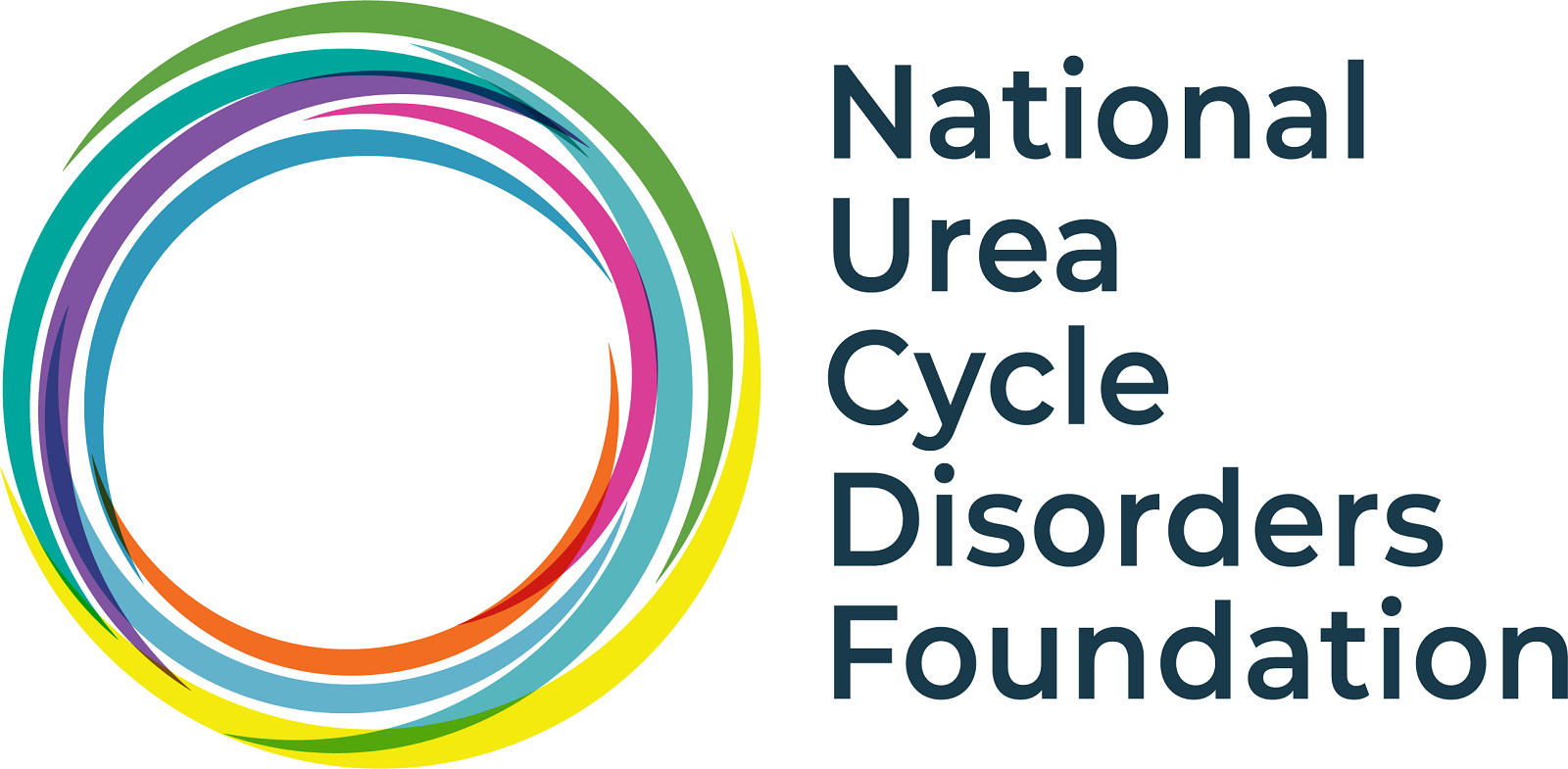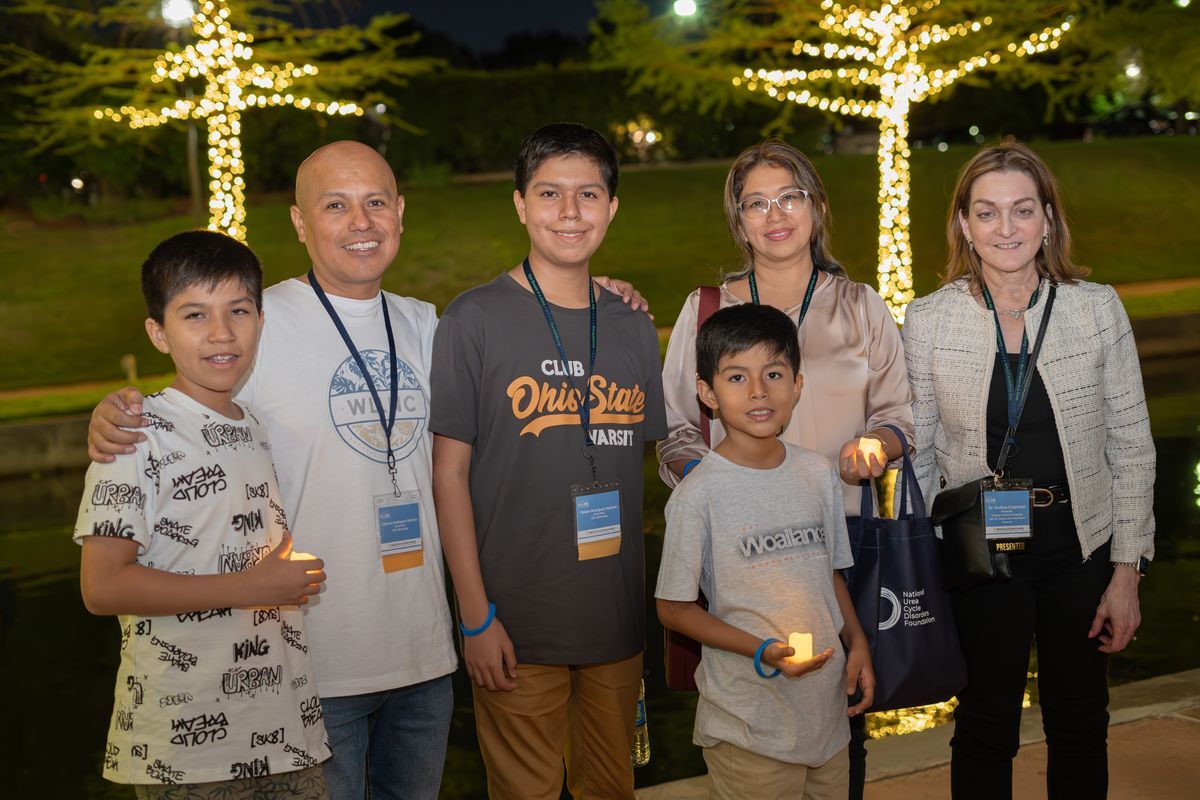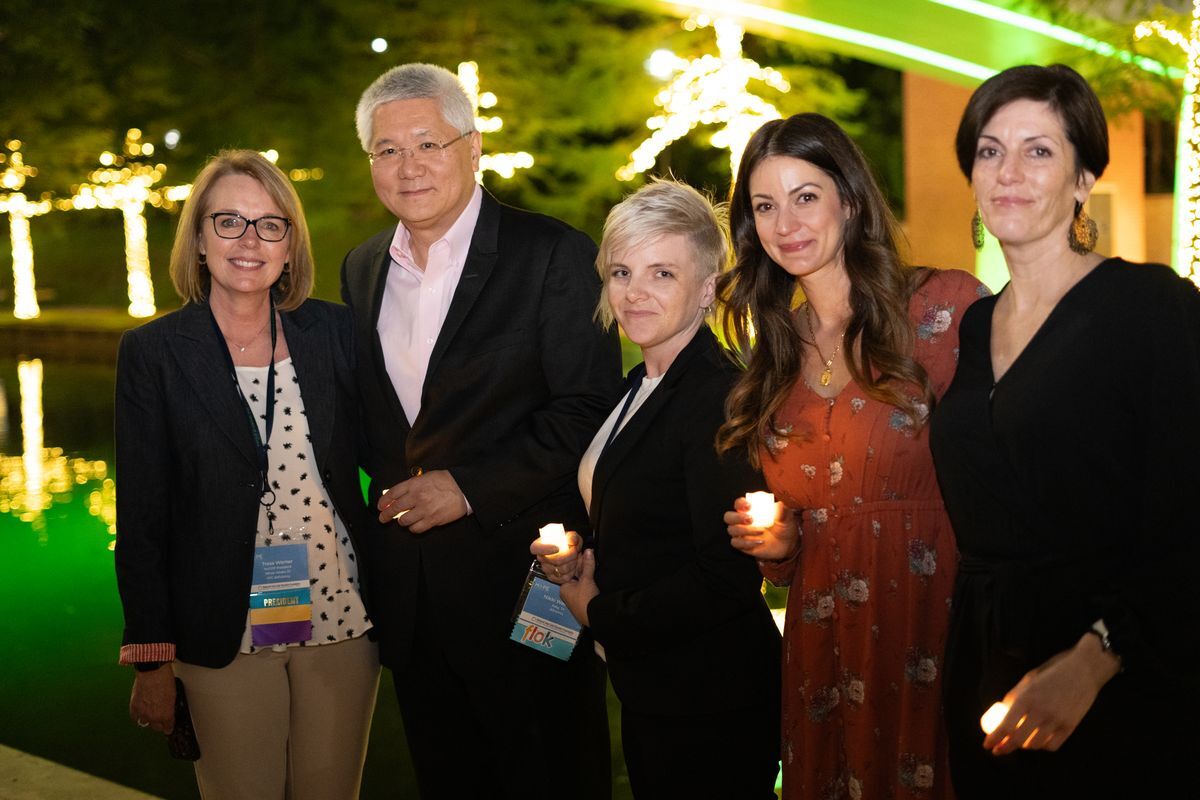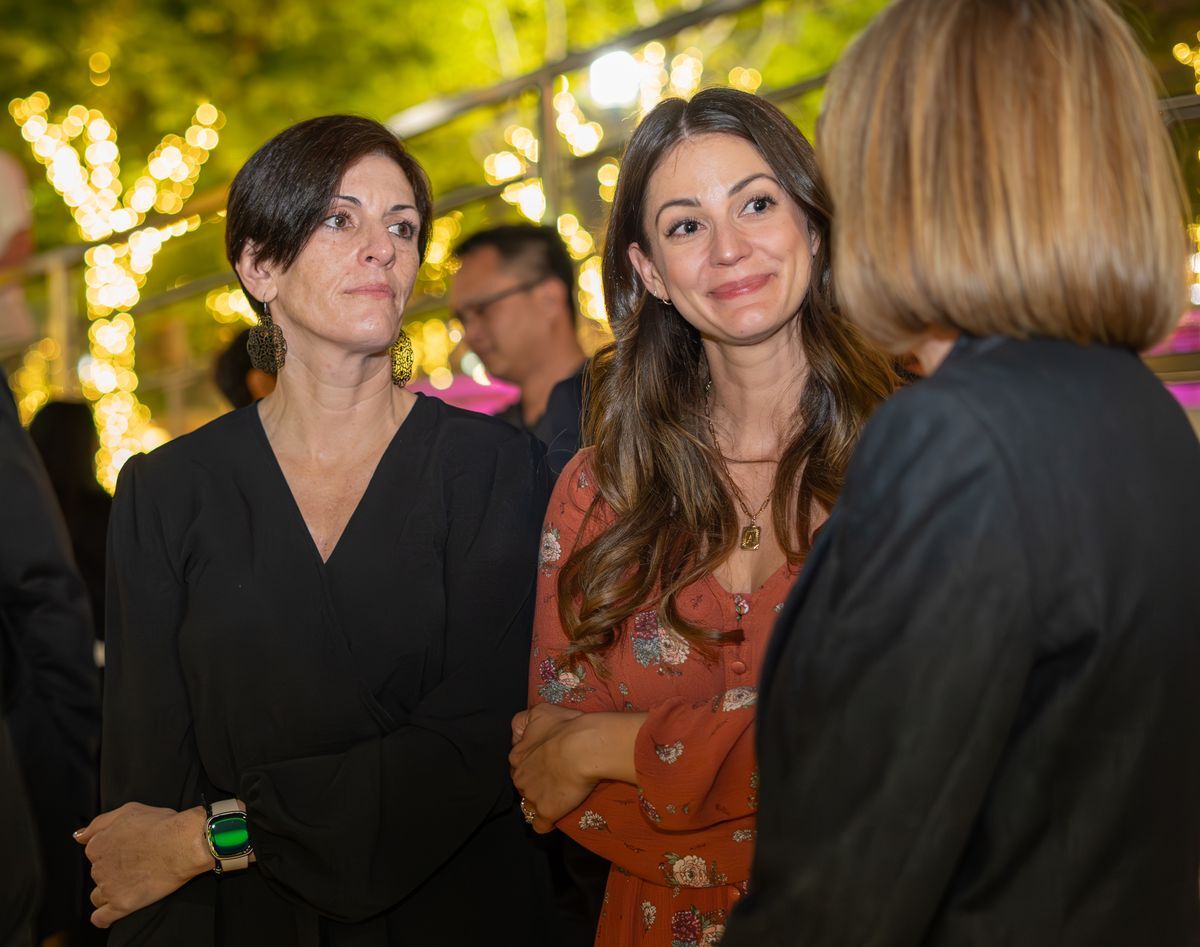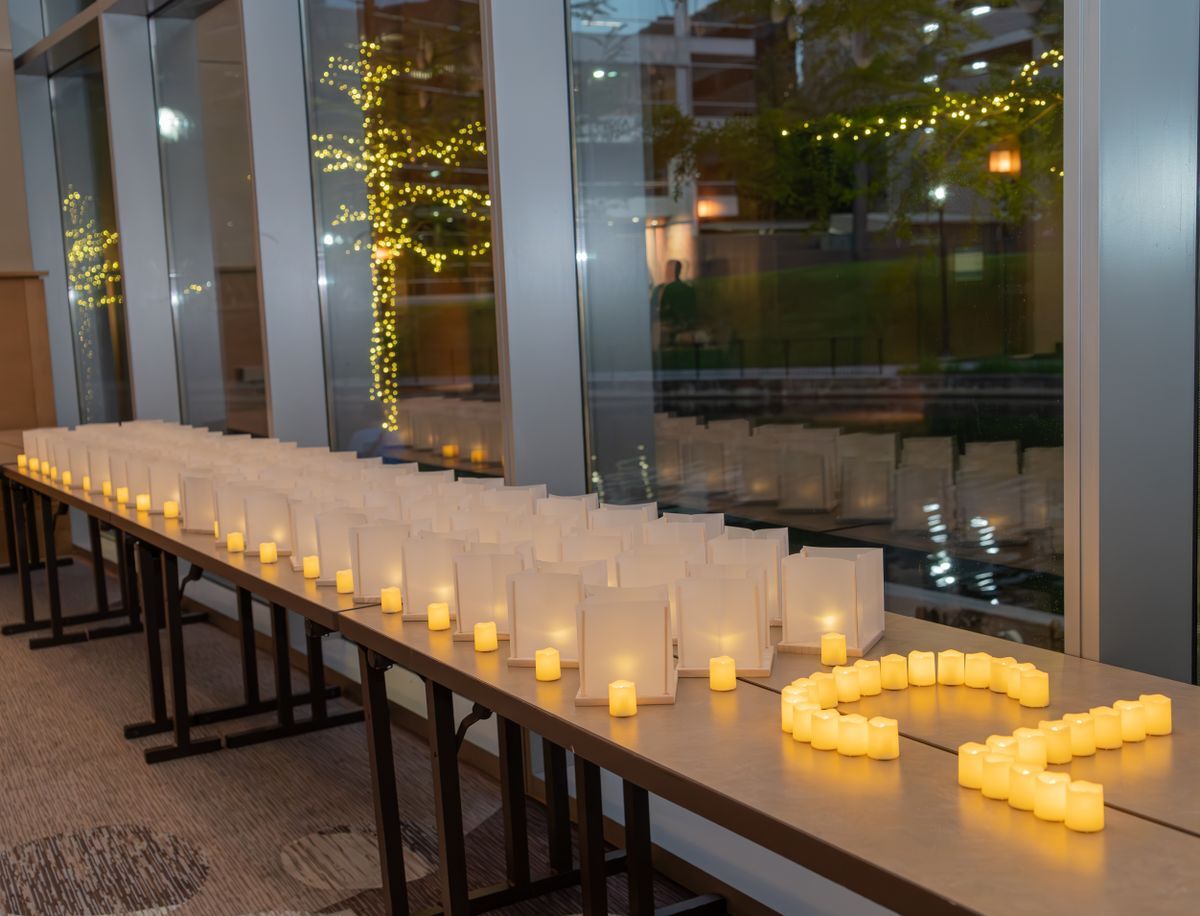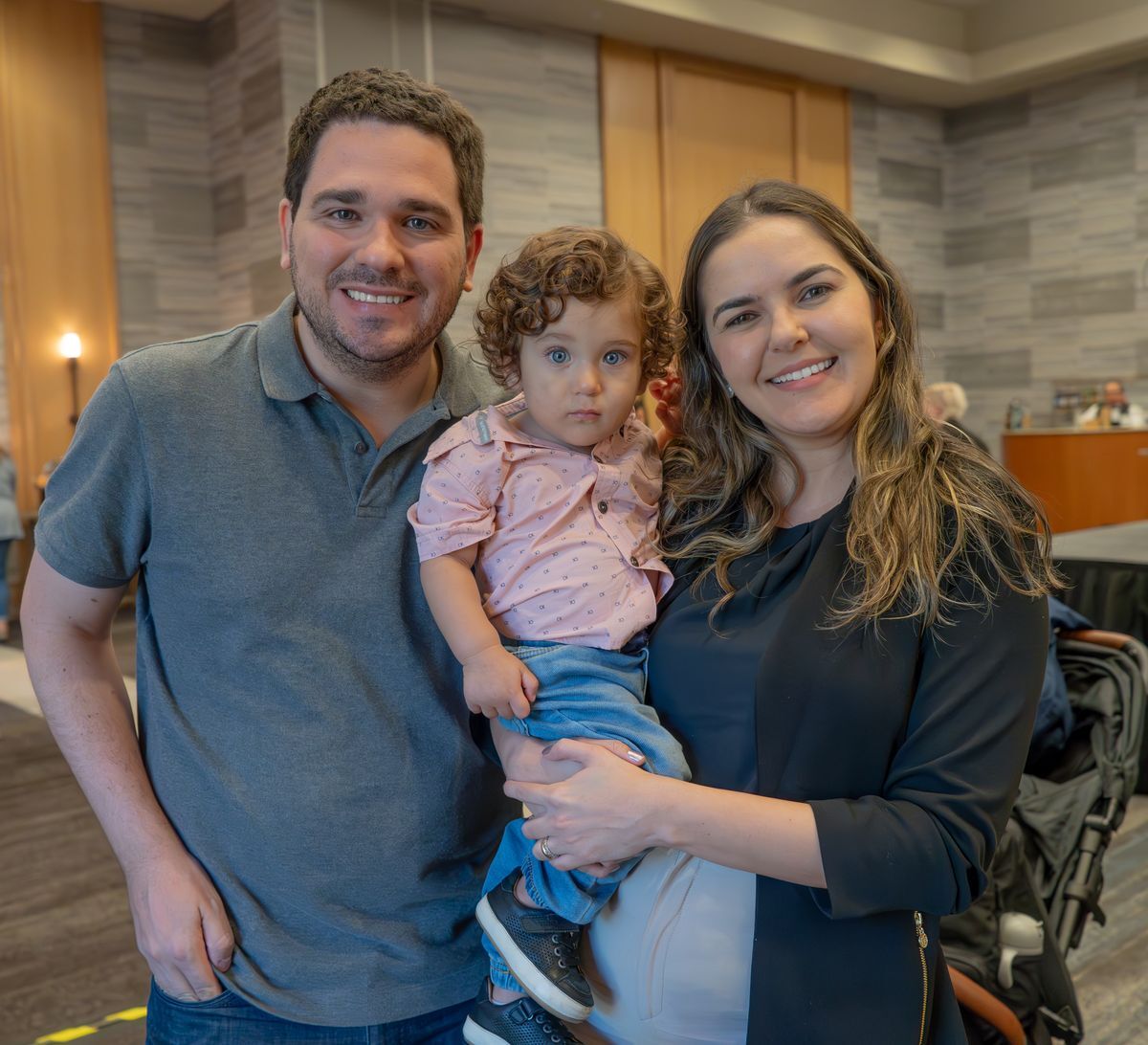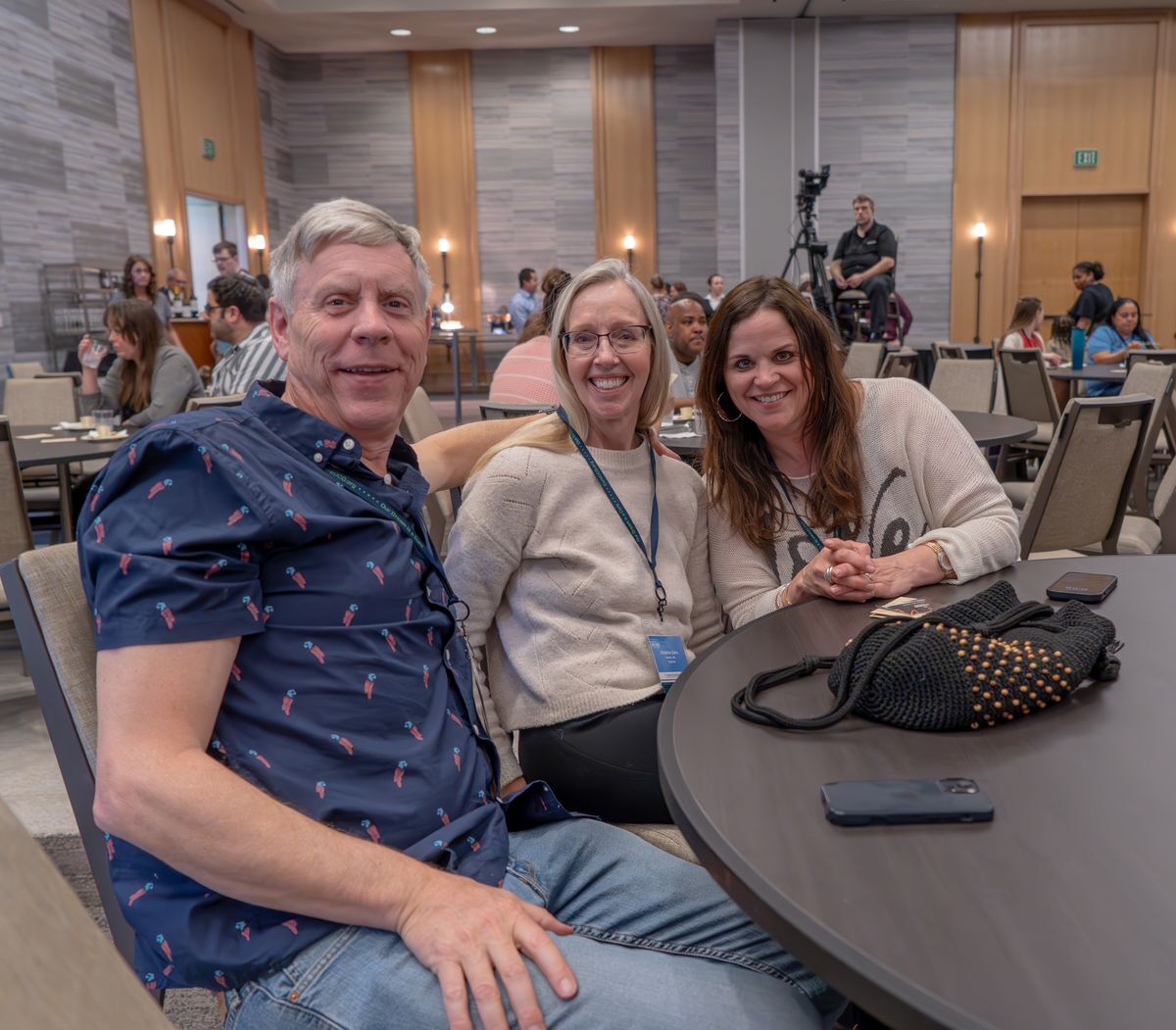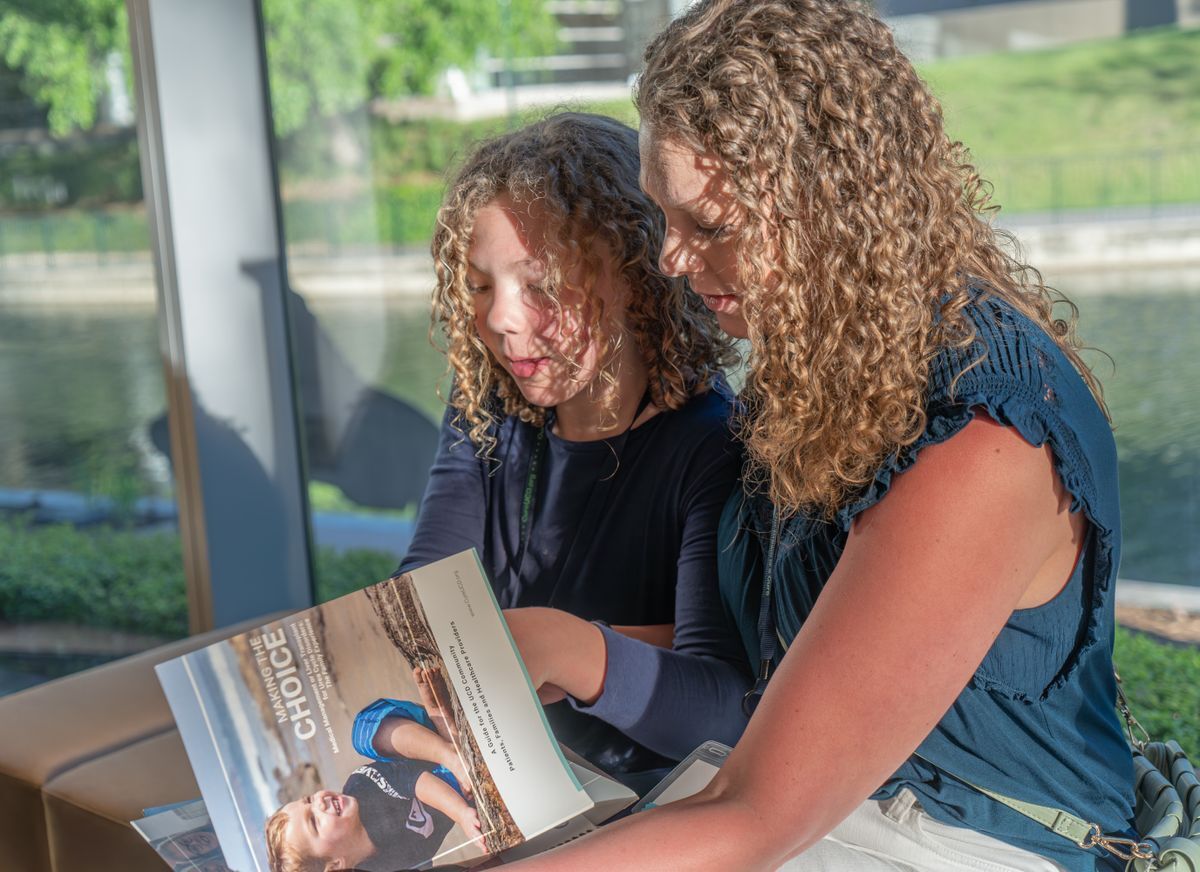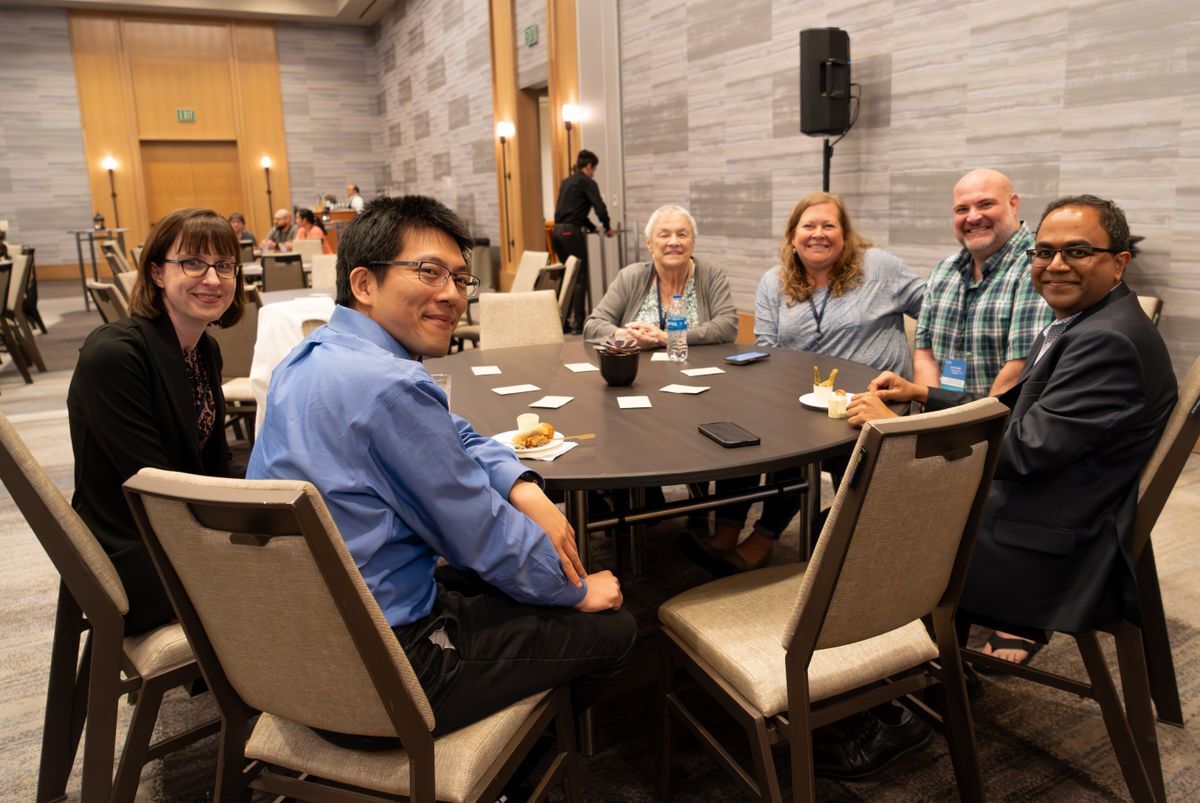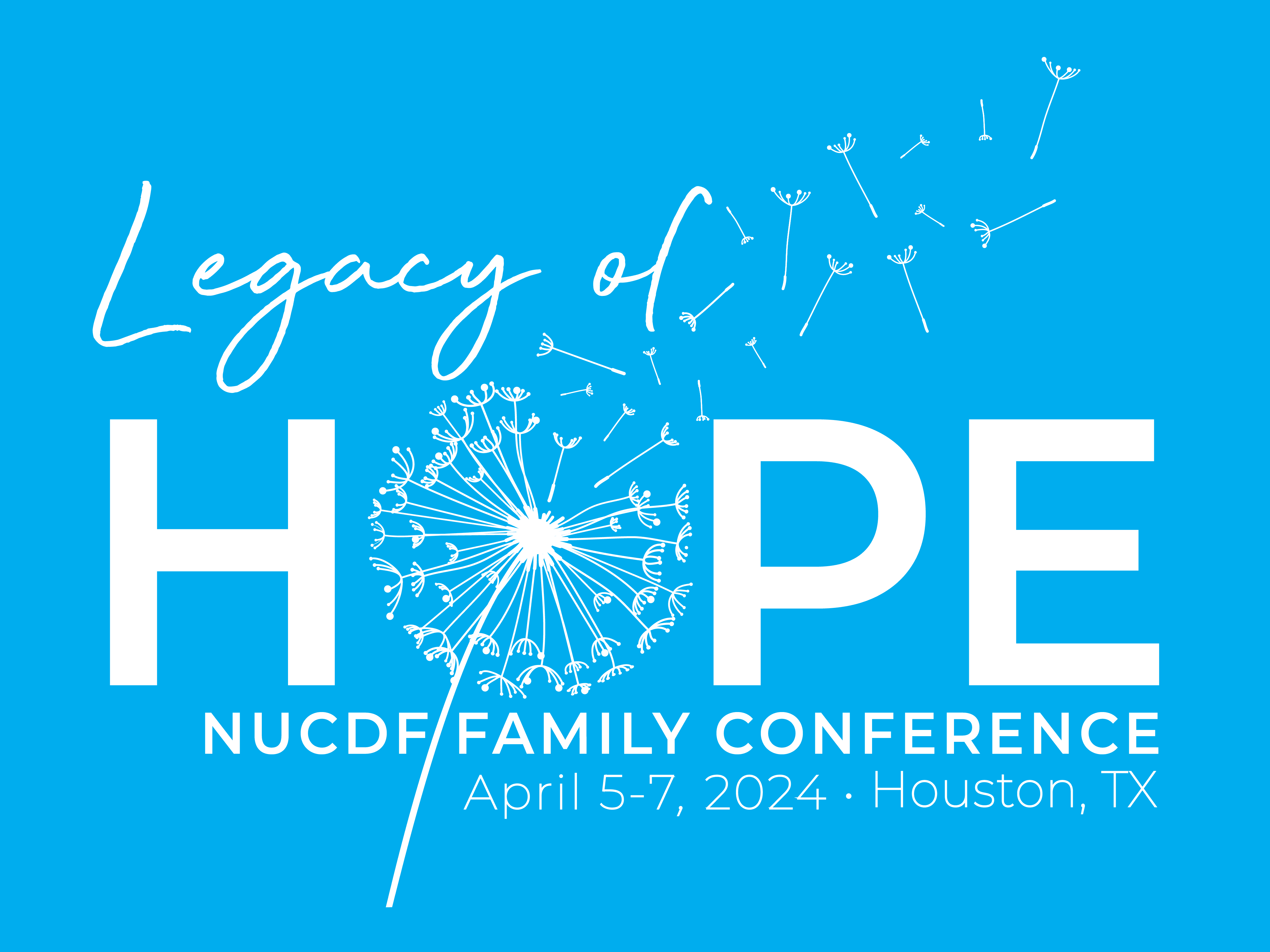
In early April, the 2024 NUCDF Family Conference “Legacy of Hope” welcomed 54 families from the U.S., Puerto Rico, Brazil, Peru, El Salvador, and Canada, as well as nearly 40 medical professionals focused on improving the lives of people affected by urea cycle disorders. The “Legacy of Hope” conference theme guided the program as attendees honored the past and looked to the future.
The busy weekend featured two days of educational sessions, panel discussions, and breakouts targeted at patients and families; joint scientific meetings with the Urea Cycle Disorders Consortium, NUCDF’s research partner; an evening reception featuring an illuminated nighttime tribute; a very active kids’ camp; neuroimaging study sessions; and many fellowship opportunities.
Please watch NUCDF’s social media channels over the coming weeks to hear stories and see photos from many attendees, like this report from Kingston Stansberry, one of our younger attendees, and these thoughts from the Olson family. We will also announce when presentation videos slides are available.
Honoring a Legacy
The conference opened on Friday night with a welcome reception honoring Cindy Le Mons, NUCDF’s longtime executive director, celebrating the impact she had on the UCD community.
Tresa Warner, president of the NUCDF Board of Directors, opened the event by welcoming attendees and saying “Cindy was our grounding force, the center of knowledge, and the bedrock of the UCD world. She was a phenomenal leader whose passion for helping our most vulnerable families was rooted deeply in her soul. She radiated that passion to everyone around her. She has left enormous shoes to fill, but we commit to continuing her life's work in her honor.”
A memorial slideshow and photo book featuring images, messages, and memories from people whose lives had been changed by Cindy’s work was presented to Cindy’s sister, Eva Oseland, and her nieces.
Brendan Lee, M.D., Ph.D., Baylor College of Medicine, delivered a lecture in her honor.
“I had the good fortune to know Cindy Le Mons since I was a new faculty member and investigator studying UCDs,” he said. “She was such an inspiration to all of us. Not just because she was so smart, but also because she really knew the disease, via her own family experiences and all the families she helped. She was the perfect observational scientist, and her observations and intuition guided a whole field of scientists. We all miss her very much, but her legacy will live on in the work that we do.”
You can see the tribute video here.
Dr. Lee announced two new programs named in honor of Cindy Le Mons that will build on her legacy:
The Cynthia Le Mons Memorial Lecture Series on Metabolism will be an ongoing lecture series featuring professionals in the field of genetics sharing high-impact research and insights.
The NUCDF Cynthia Le Mons Fellowship Grant will support early-stage investigators conducting research in urea cycle disorders.
It’s not too late to honor Cindy’s memory and support these new initiatives. Donations can be made here.
Sessions for patients and families
Educational opportunities for families kicked off with several workshops on Friday afternoon.
Topics included:
My UCD Story: A glimpse into adult life of a UCD patient by Kristy McCracken, patient with OTC deficiency
UCD impact on family lives, learning processes and educational challenges by Marifi Escobar UCD parent, and educational advocate
ABCs of UCDs by Lindsay Burrage, M.D., Ph.D., Baylor College of Medicine
Saturday’s events kicked off with a keynote presentation by Dr. Sandesh C.S. Nagamani, MBBS, M.D., of Baylor College of Medicine. He shared a historical perspective on research into urea cycle disorders, and prevalence data, and outlined challenges to advancing research and clinical care.
He highlighted NUCDF’s critical role in advancing clinical care and research in UCDs along with the work of its research partner, the Urea Cycle Disorders Consortium.
Dr. Nagamani compared outcomes for people with UCDs over time. Before nitrogen-scavenging therapies were widely available, the one-year survival rate for individuals with UCDs was 14%, and 75% of survivors had intellectual and developmental disabilities. A 2019 paper found significantly better neurological outcomes, with most UCD patients in the normal range of cognitive functioning. He outlined the ways that patients and NUCDF can contribute to ongoing research and introduced the day’s program by describing new research underway to further improve outcomes.
Panel sessions and breakout discussion groups throughout the day accompanied by educational sessions. View conference presentations and download slides here.
- Emerging knowledge from MRI imaging studies: Is ammonia control enough? by Andrea Gropman, M.D., Children’s National Hospital
- New insights on liver disease in urea cycle disorders by Lindsay Burrage, M.D., Ph.D., Baylor College of Medicine
- Improving diagnosis with the awesome power of yeast genetics by Aimee Dudley, Ph.D., Pacific Northwest Research Institute
- Liver transplantation for urea cycle disorders: Lessons from the past 30 years by George Mazariegos, M.D., Children's Hospital of Pittsburgh
- Making the choice between medical management and liver transplant: The family experience by Nicholas Ah Mew, M.D., Children’s National Hospital
- Fork in the road: Improving your UCD diet by Erin MacLeod, R.D., Ph.D., Children’s National Hospital
- Gene therapy: Is it the new frontier? by Shawn McCandless, M.D., Children’s Hospital of Colorado
- Hope happens here: Understanding and participating in clinical trials for urea cycle disorders by Susan Berry, M.D., University of Minnesota Medical School
Breakout sessions focused on optimizing UCD management and managing the effects of UCDs, understanding treatment options, transitioning to adult care, and family planning.
Industry updates were also offered by Zevra, the maker of OLPRUVA (sodium phenylbutyrate for oral suspension), and Ultragenyx, which is currently conducting an OTC gene therapy trial.
